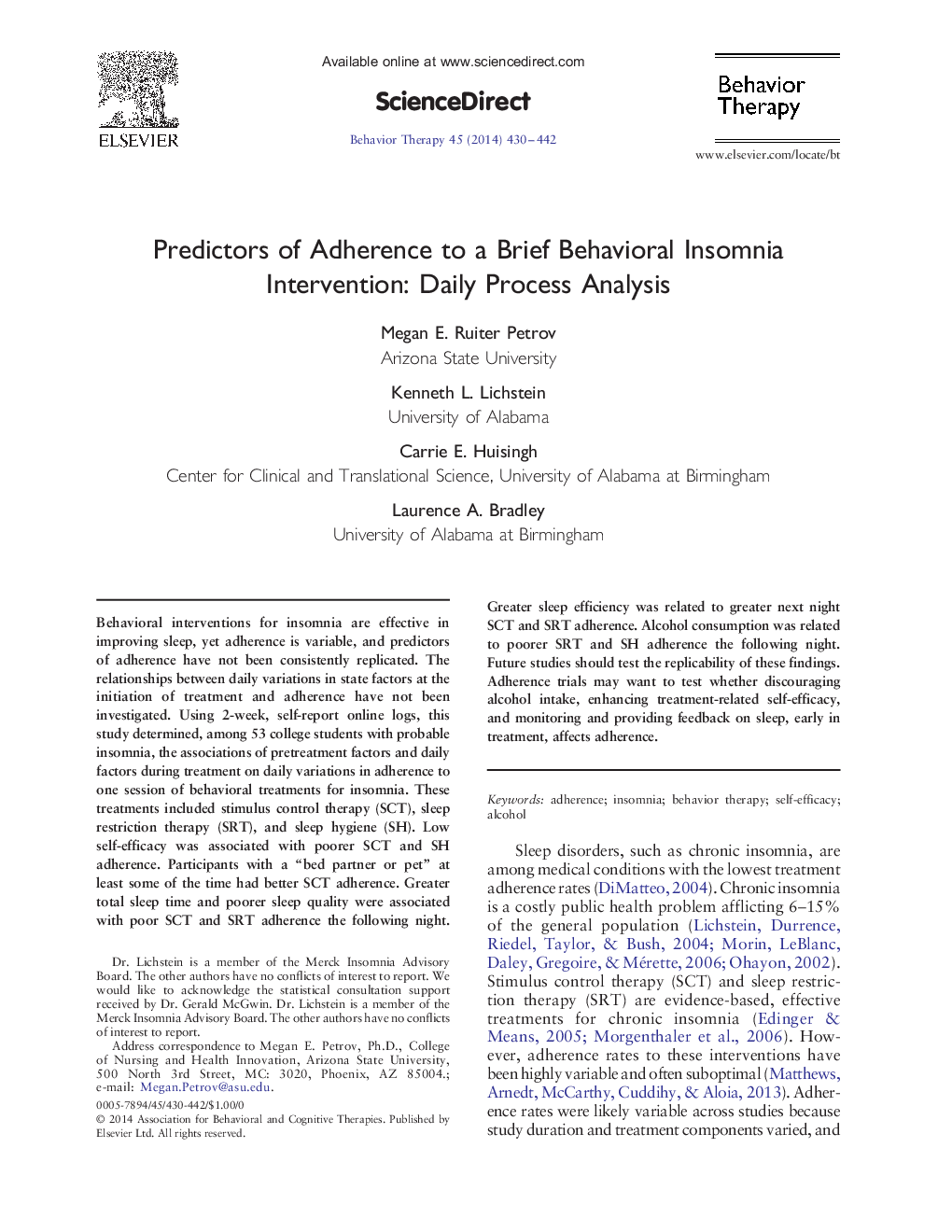| Article ID | Journal | Published Year | Pages | File Type |
|---|---|---|---|---|
| 901518 | Behavior Therapy | 2014 | 13 Pages |
•We evaluated participant predictors of adherence to behavioral insomnia treatment.•We assessed daily experienced factors for 2 weeks after one session of treatment.•Treatment elements included stimulus control, sleep restriction, and sleep hygiene.•Poorer sleep quality and longer total sleep time were related to poor adherence.•Alcohol intake and lower self-efficacy were related to poor adherence.
Behavioral interventions for insomnia are effective in improving sleep, yet adherence is variable, and predictors of adherence have not been consistently replicated. The relationships between daily variations in state factors at the initiation of treatment and adherence have not been investigated. Using 2-week, self-report online logs, this study determined, among 53 college students with probable insomnia, the associations of pretreatment factors and daily factors during treatment on daily variations in adherence to one session of behavioral treatments for insomnia. These treatments included stimulus control therapy (SCT), sleep restriction therapy (SRT), and sleep hygiene (SH). Low self-efficacy was associated with poorer SCT and SH adherence. Participants with a “bed partner or pet” at least some of the time had better SCT adherence. Greater total sleep time and poorer sleep quality were associated with poor SCT and SRT adherence the following night. Greater sleep efficiency was related to greater next night SCT and SRT adherence. Alcohol consumption was related to poorer SRT and SH adherence the following night. Future studies should test the replicability of these findings. Adherence trials may want to test whether discouraging alcohol intake, enhancing treatment-related self-efficacy, and monitoring and providing feedback on sleep, early in treatment, affects adherence.
